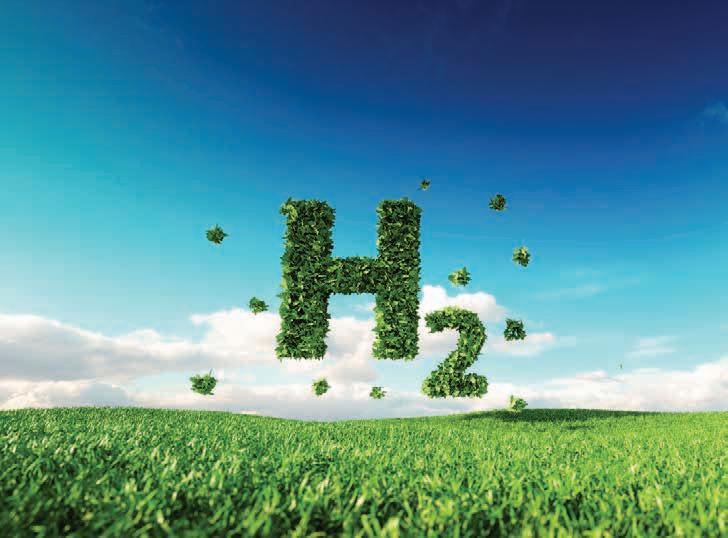
5 minute read
CHEMICALS
While the pandemic heralded a boom for cleaning and disinfectant manufacturers, the sudden increase in demand created immediate challenges for the industry, including shortages in the supply of raw materials, price increases, and stricter enforcement of trading terms with suppliers.
“Our company was largely able to meet this demand without major changes to our operation, but many manufacturers may have found it challenging to upscale their existing capacity so quickly while meeting the associated financial demands,” says Emma Corder, managing director of Industroclean. “The demand seems to have stabilised now, and with it has come a return to normal pricing levels and greater availability of raw materials.”
Judy Sunasky, head of cleaning chemical manufacturing for Prime Cleaning, agrees: “After the initial challenge of the COVID-19 rush from March to May last year, the market has adapted and is now able to meet the demand.”
The Compulsory Specification for Chemical Disinfectants came into effect in October 2017 to safeguard the environment while also protecting consumers. “Chemical substances that make public health claims in South Africa must now comply with minimum safety requirements and be registered by the National Regulator for Compulsory Specifications (NRCS),” says Lee O’Reilly, Industroclean’s safety, health, environment and quality manager. “The public is also assured that the packaging and labelling of such products meet stringent requirements.
“As an ISO 9001:2015 certified company, Industroclean already had a quality management system (QMS) and followed
KEEP IT CLEAN
Demand for cleaning and disinfectant products grew exponentially when the pandemic hit in early 2020. CARYN GOOTKIN looks at how the industry coped
good manufacturing practices (GMP), so we did not feel the impact of this change, but some companies may have needed to readjust their formulations,” adds O’Reilly.
“The amendment gives customers the guarantee that when they buy a disinfectant product from a reputable supplier it is effective against the category of microbes it is designed for,” says Sunasky. “Prime Cleaning’s existing quality control and operations made the adjustment a natural progression, but there have been delays due to a backlog of paperwork at the NRCS caused by the rush of new entrants to the market,” she says.
O’Reilly lists the following requirements that products must now meet: 1. Any product that claims to clean or disinfect any surface must now be registered based on what pathogens it reduces or eliminates – bactericidal, fungicidal/yeasticidal, sporicidal or virucidal efficacy. 2. Each disinfectant requires a safety data sheet. 3. Packaging must be impervious to and incapable of reacting with its contents, be sufficiently strong and have means to prevent leakage. 4. Labels must meet stringent requirements regarding contents, safety and claims. 5. The manufacturer must prove they have a QMS or GMP system in place. In addition, food disinfectants require a SABS 1853 or an Intertek EN1276 certification. “Industrial and domestic products require South African National Accreditation System laboratory tests showing the necessary kill rates over time for the type of disinfectant, while health products require South African Health Products Regulatory Authority registration, which ensures the product is fit for use on humans and meets medical requirements,” says Sunasky.

KEEP IT GREEN
South Africa has been identified as a potential leader in the production of green hydrogen, with a very lucrative potential export market. CARYN GOOTKIN finds out what this means for the country
Hydrogen is the most abundant chemical substance in the universe, and therefore, presents the ideal energy transfer medium, says Ian Fraser, founder and chairman of the African Hydrogen Partnership (AHP). “While hydrogen can be obtained from splitting other chemical compounds (like methane), this process releases carbon dioxide. Green hydrogen is generated by processes and technologies that use direct solar or wind energy and do not add greenhouse gases of any kind to the atmosphere.”
“As the world moves towards renewables as the primary energy vector, production will become increasingly geographically constrained, necessitating increased cross-border transportation and storage of green energy,” says Jonathan Metcalfe, south market lead for Hydrogen PWC. “Hydrogen is a highly ef cient carrier and long-term store of green energy that can also be used to decarbonise sectors that renewable electrons alone cannot.”
WHY SOUTH AFRICA?
The vast open spaces and abundance of sunlight in Africa are ideal for the development of green hydrogen. “South Africa has all these advantages and is also technologically developed, placing it in an ideal position to drive the hydrogen revolution throughout the continent,” says Fraser.
Metcalfe points out that South Africa has world-class wind and solar resources co-located, creating a good opportunity for hybrid production models. “Wind and solar in South Africa tend to correlate negatively, creating a smoother energy pro le to run electrolysis technology, allowing for greater ef ciency and more cost-effective production of green hydrogen than most of the world.”
WHO ARE THE KEY ROLE PLAYERS?
Numerous organisations – both commercial and academic – are working on developing green hydrogen technologies in Africa. “In the public sector, the Department of Science and Innovation and the Council for Scienti c and Industrial Research are currently championing hydrogen development, with some interaction from the Department of Mineral Resources,” says Metcalfe. “In the private sector, international funders (developers, investors, banks, governments from Japan and Germany) have a particular interest in Africa. PwC has established a worldwide hydrogen network of consultants, industry experts and academics. We are here to support the county in transitioning to a sustainable green energy major. “
“The African Hydrogen Partnership is now a registered organisation and membership is open to all companies and institutions that are active in the hydrogen industry,” says Fraser. “The AHP will play a leading role in co-ordinating the hydrogen-powered green energy initiative throughout the continent.”










